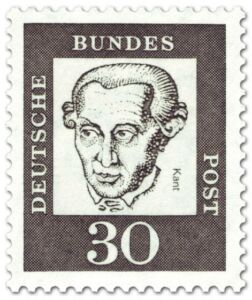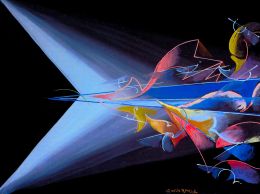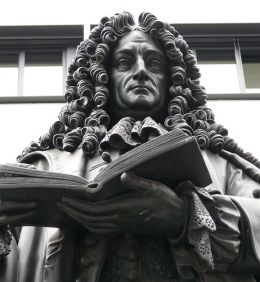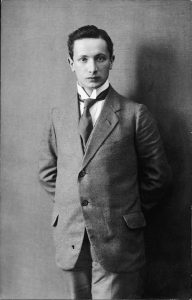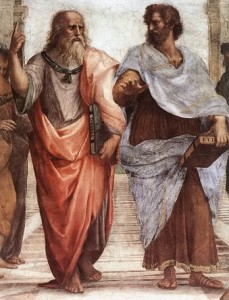Tag: Heidegger’s History of Metaphysics
-
June 16, 2021 Collin Cleary
Heidegger’s History of Metaphysics, Part Ten: Kant & the Metaphysics of Presence
6,542 words
All essays in this series available here
1. Introduction
With this, the tenth essay in this series, we have reached a significant milestone. Our journey has taken us from Plato to Kant, and this is the fourth essay on Heidegger’s Kant interpretation. In the last installment, we saw that Kant is struggling to transcend the representationalist paradigm, but that he is inconsistent in this. (more…)
-
6,864 words
All essays in this series available here
1. Introduction
My two previous essays introduced readers to Kant’s transcendental idealism and discussed the similarities and differences between Kant’s critique of metaphysics and Heidegger’s. It is now time to begin to consider Heidegger’s critique of Kant, and how Heidegger locates him within his history of metaphysics. (more…)
-
-
5,568 words
Part 1 here, Part 2 here, Part 3 here, Part 4 here, Part 5 here, Part 6 here
1. Introduction
In the previous essay in this series, we saw Heidegger claiming that Leibniz “prepares” the completion of the metaphysical tradition, but that it is Nietzsche who actually brings it about. I will devote a future essay to Heidegger’s interpretation of Nietzsche, but we may note here that the completion of metaphysics would have been impossible without Kant, who answers Leibniz and inadvertently prepares the way for Nietzsche. (more…)
-
7,567 words
Part 1 here, Part 2 here, Part 3 here, Part 4 here, Part 5 here
1. Introduction: Leibniz and the Completion of Metaphysics
Gottfried Wilhelm, Freiherr von Leibniz (1646–1716) is one of the most extraordinary figures in the history of ideas. A true polymath, he was not only a philosopher but a physicist, historian, jurist, diplomat, inventor, and mathematician. (more…)
-
4,305 words
1. Introduction: From Objectivism to Subjectivism
In the previous two installments (Part Three here, Part Four here) we have discussed at length Heidegger’s treatment of the “objectification of beings” in early modernity: how beings come to be seen as “objects” related to a “subject” that confronts them (indirectly) from within an interior space that is called “mind,” “awareness,” or even “self.” This objectification is essentially identical with the representationalist theory of knowledge, which holds that we are only indirectly aware of the “external world,” via internal images which “represent” external objects. So far, however, this may not be the account of modernity that my readers were expecting. (more…)
-
6,518 words
1. To Be Is to Be “Set Before”
In the previous installment of this series, we saw Heidegger contrasting modernity to the Middle Ages in the following terms:
For the Middle Ages . . . the being is the ens creatum, that which is created by the personal creator-God, who is considered to be the highest cause. (more…)
-
1. Introduction
For Heidegger, the history of Western metaphysics is characterized by understanding Being narrowly in terms of what satisfies human needs and desires – especially the desire for knowledge, prediction, and control. This “subjective turn” is usually associated with the modern period, but Heidegger locates its inception much earlier, with Plato and some of the Pre-Socratics. (These points are discussed at length in Part One of this series.) (more…)
-
Introduction
In the previous essay (“Heidegger’s History of Metaphysics, Part One: Platonism”) I began to sketch Heidegger’s argument for the claim that Western metaphysics lays the groundwork for the nihilism and decadence of modernity. I framed this account partly as a critique of the Traditionalists Julius Evola and René Guénon, who aimed to combat modernity with a “Traditionalism” grounded in Western metaphysics (more…)
-
8,701 words
1. Introduction
In my essay “Heidegger Against the Traditionalists,” I sketched a critique of Guénon and Evola from a Heideggerian perspective. Although I raised several objections to Traditionalism, the crucial one was this: Guénon and Evola are thoroughly (and uncritically) invested in the Western metaphysical tradition. According to Heidegger, however, it is precisely the Western metaphysical tradition that is responsible for all the modern ills decried by the Traditionalists. (more…)

